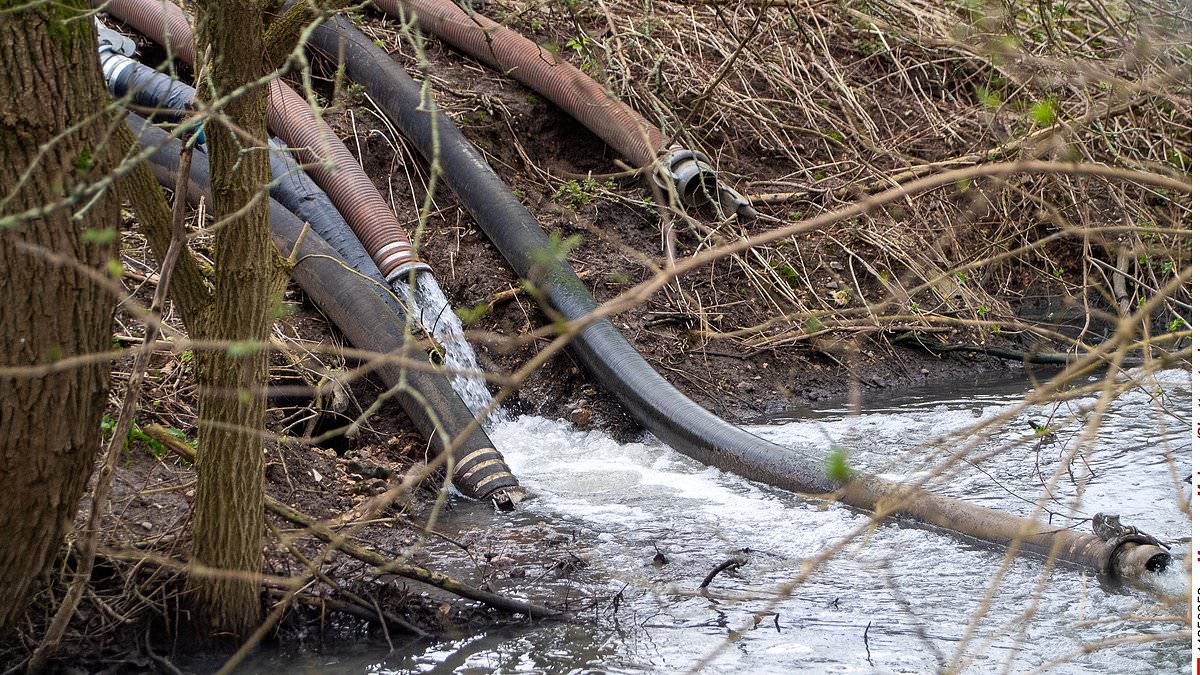A village in Buckinghamshire where John Milton penned his epic poem Paradise Lost has turned into an ‘open sewer’ after Thames Water pumped raw sewage into a stream for five months straight.
The water company’s monitors show that sewage has been discharged into the River Misbourne that flows through the picturesque village of Chalfont St Giles since January.
However, a technical glitch with Thames Water’s online map meant that the parish council only became aware of the spill one week ago.
Chalfont St Giles councillor Robert Gill told the i that the Buckinghamshire village now ‘smelled like an open sewer’.
He said there is ‘sewage fungus floating down the river and sticking to the sides’ and explained that the council had been forced to close the village play park due to the pollution.
Thames Water tested water samples from the River Misbourne last week for chemicals such as ammonia and dissolved oxygen that indicate sewage pollution.
Although the water company is still verifying the final figures, Mr Gill raised concerns that the initial results were ‘very, very, high’.
Thames Water acknowledged that sewage was being discharged into the stream but blamed the spills on the fact that the region had experienced its eighth wettest winter on record.
The company said floodwater had entered the sewage tanks which in turn discharged diluted wastewater into the River Misbourne.
John Milton’s cottage – the only surviving home of the visionary 17th-century poet- is located in the village of Chalfont St Giles making it popular with visitors.
It was there that Milton – having travelled to escape the Great Plague of 1665 -completed his epic masterpiece Paradise Lost.
The Grade I listed building in Chalfont St Giles is now open to members of the public as a museum.
The River Misbourne has also been highlighted as one of England’s rare chalk streams.
Chalk streams were previously described by David Attenborough as ‘one of the rarest habitats on earth’ and are seen to be under threat from sewage pollution.
In 2022, raw sewage was dumped into England’s seas and rivers on over 300,000 occasions.
Water companies have been threatened with fines if they continue to spill raw sewage into waterways.
A Thames Water spokesperson said: ‘Our region has experienced the eighth wettest winter on record, resulting in exceptionally high groundwater and river levels.
‘This groundwater and river floodwater then entered our sewers and filled the Amersham storm tanks, meaning they are full and are discharging diluted wastewater into the River Misbourne, for which we are sorry.
‘We’ve put transparency at the heart of what we do, and we were the first water company to publish a real time data map.
‘Our monitor at our Amersham Storm Tanks site is now publishing this data for the public to see and while all discharges are unacceptable, the sewage system was historically designed to work in this way, to prevent sewage backing up into people’s homes.
‘We know how much rivers are loved and enjoyed by everyone, and we are committed to seeing our waterways thrive. Our engineers are using filter units at the storm tanks and are working hard to minimise the impact to the river.
‘We have published plans to upgrade 250 of our sites across the region, as we strive to increase treatment capacity and reduce the number of necessary discharges.
‘However, more investment is needed across the entire sector, as infrastructure ages and demand on it increases. That’s why we’ve asked for increased investment in the next regulatory cycle between 2025-2030.’
